You might have seen the recent controversy surrounding Dutch Baby & Yorkshire Puddings. Brits have reacted to Americans suggesting they’ve invented a fluffy pancake named Dutch Baby, with their response saying that food item has been around in the UK for a long time and it is actually identified as the Yorkshire Pudding. We set out to look at what other food items the UK and US describe differently, and we also decided to have a little fun and mash up the terms too. Because let’s face it, some translations are that different, when combining the two you get some weird names… like Yorkshire Baby.
Here’s what else we discovered when translating transatlantic foods:
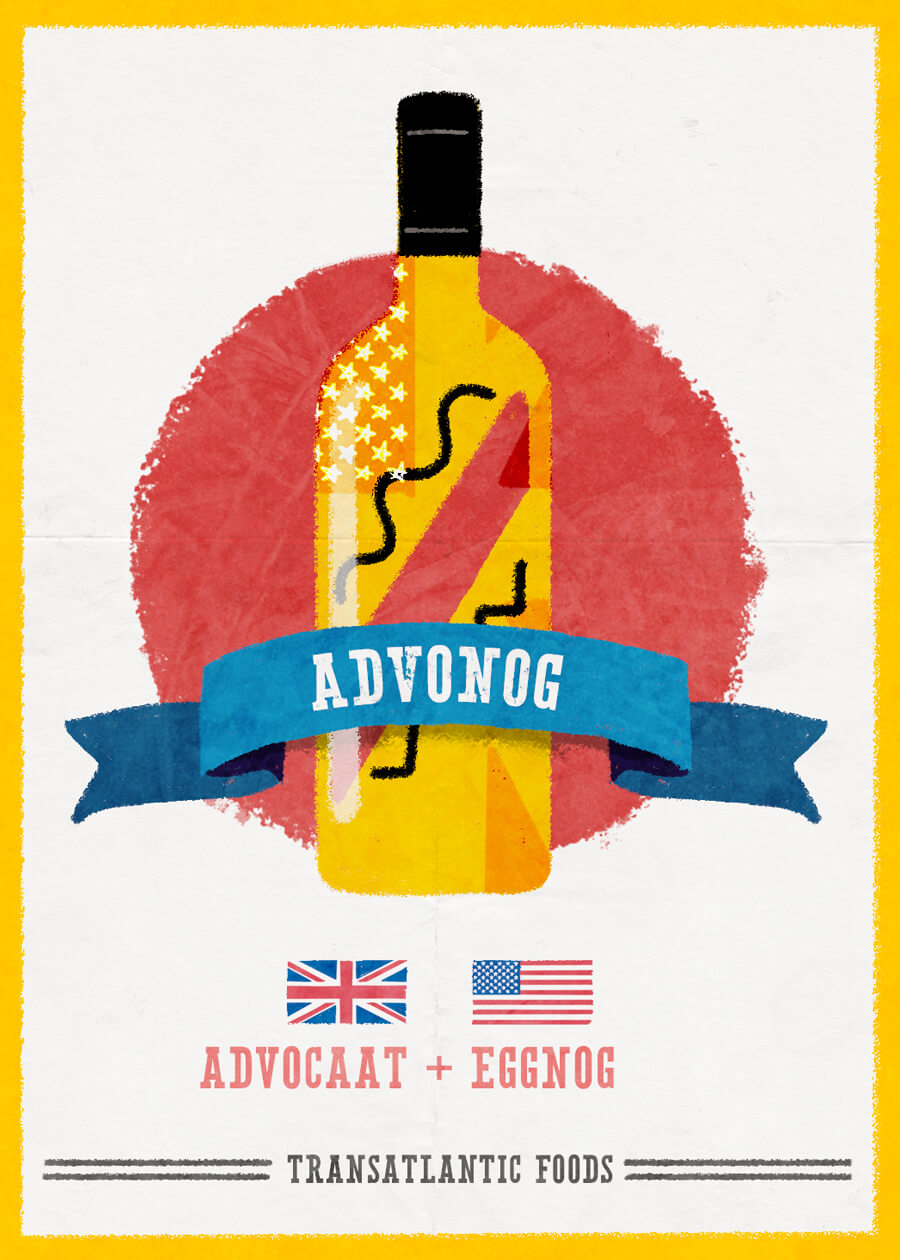
Advocaat + Eggnog = Advonog
The British call it Advocaat, the Americans called it Eggnog, put together we get Advonog. Turns out whatever side of the pond you’re from, both are wrong. It’s a Dutch alcoholic beverage made from eggs, sugar and brandy and they call it Advocatenborrel.
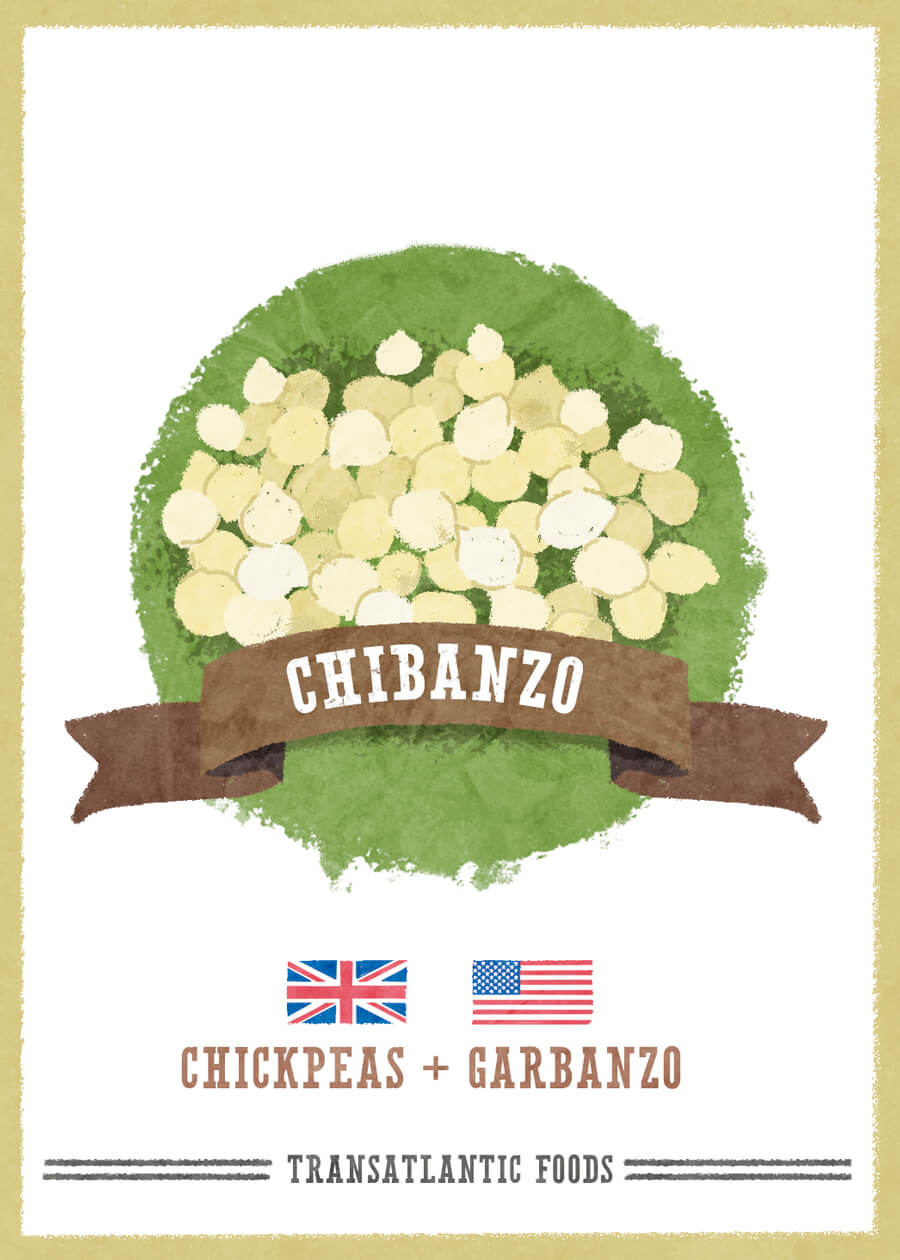
Chickpeas + Garbanzo = Chibanzo
The British know them as Chickpeas, the American as Garbanzo, they ‘both refer to a plant in the legume category with the scientific name Cicer arietinum’.
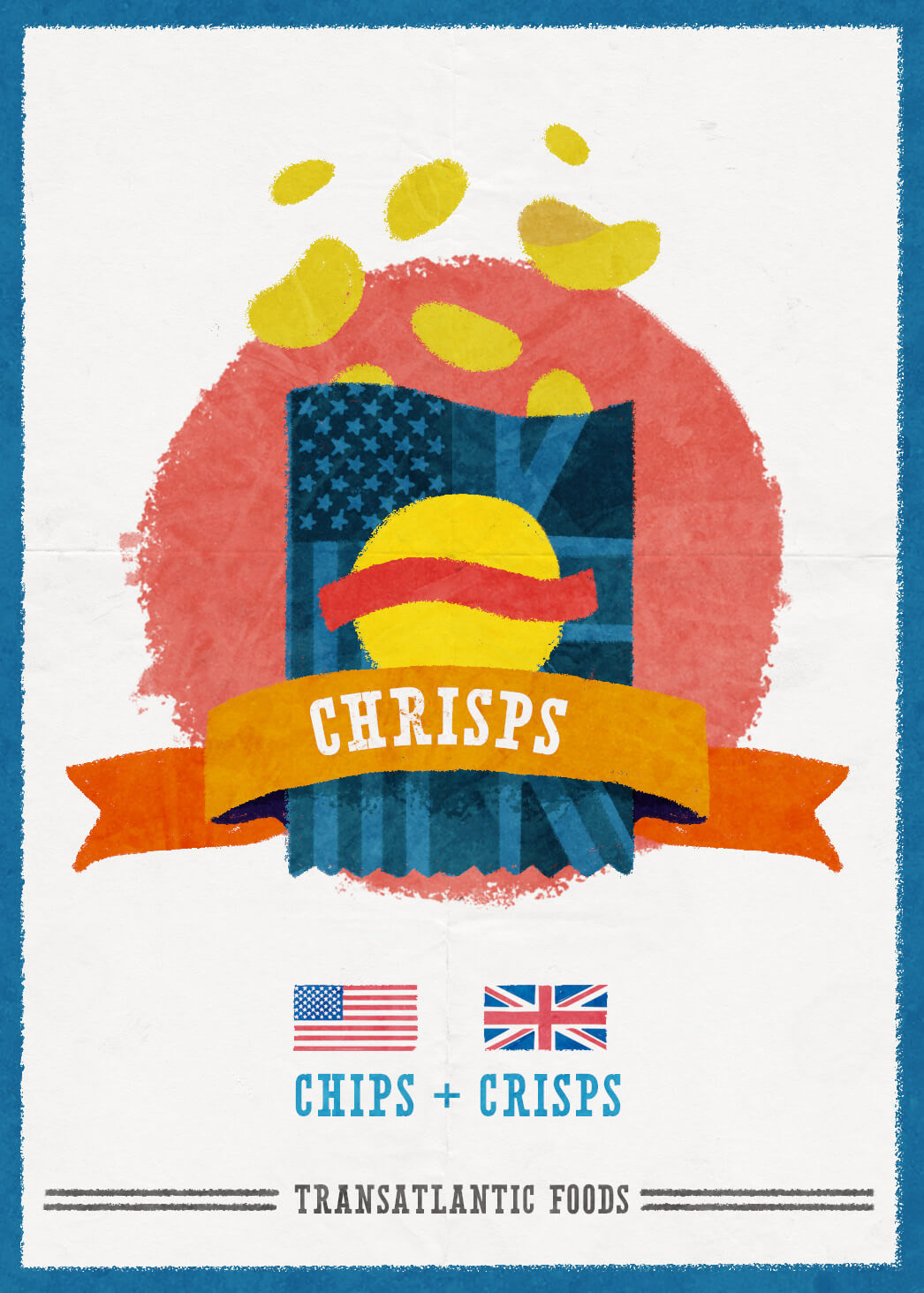
Crisps + Chips = Chrisps
The British call them crisps, the American’s chips, together we get chrisps. While this mashup is not as drastic as the others, it’s important to highlight as chips in the UK refer to fries in America. See below.
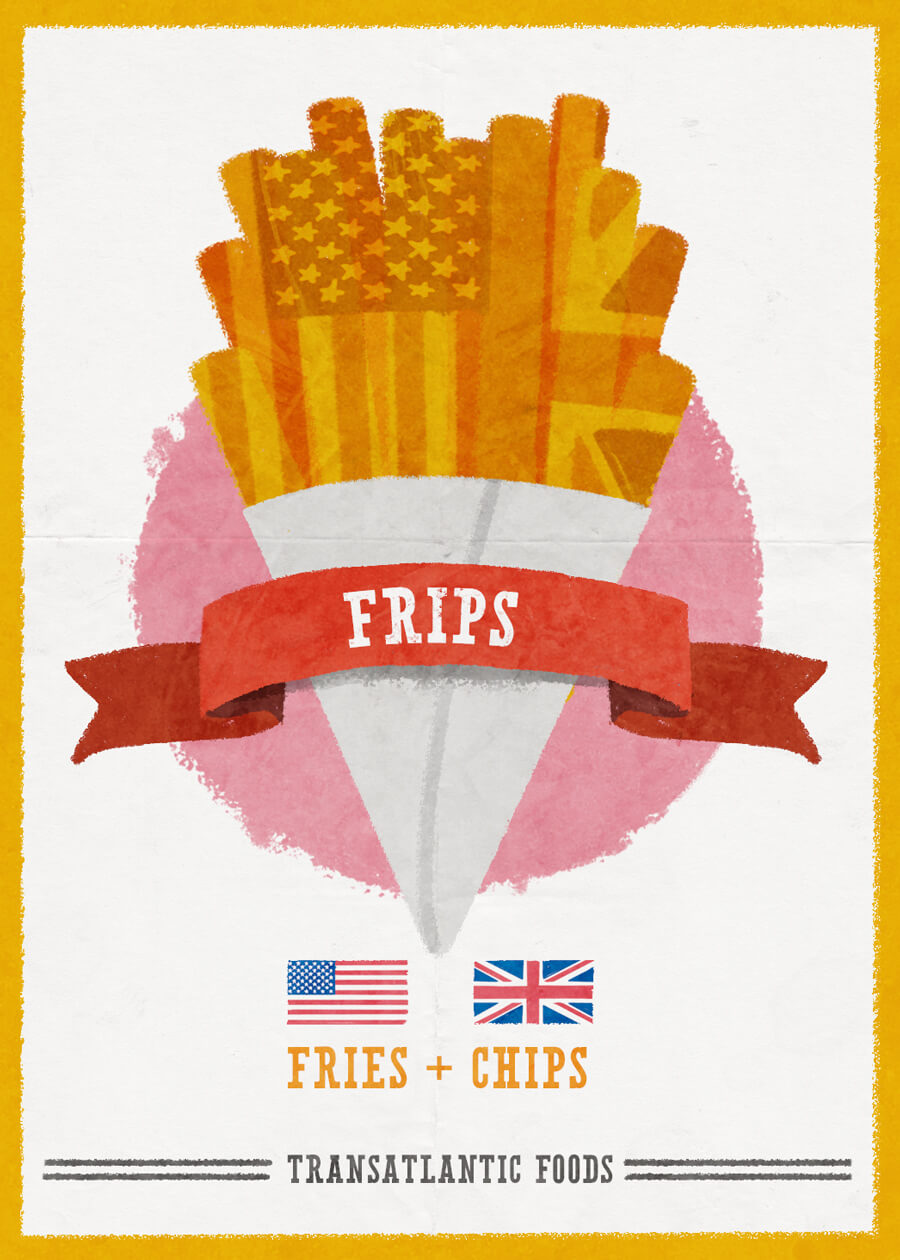
Chips + Fries = Frips.
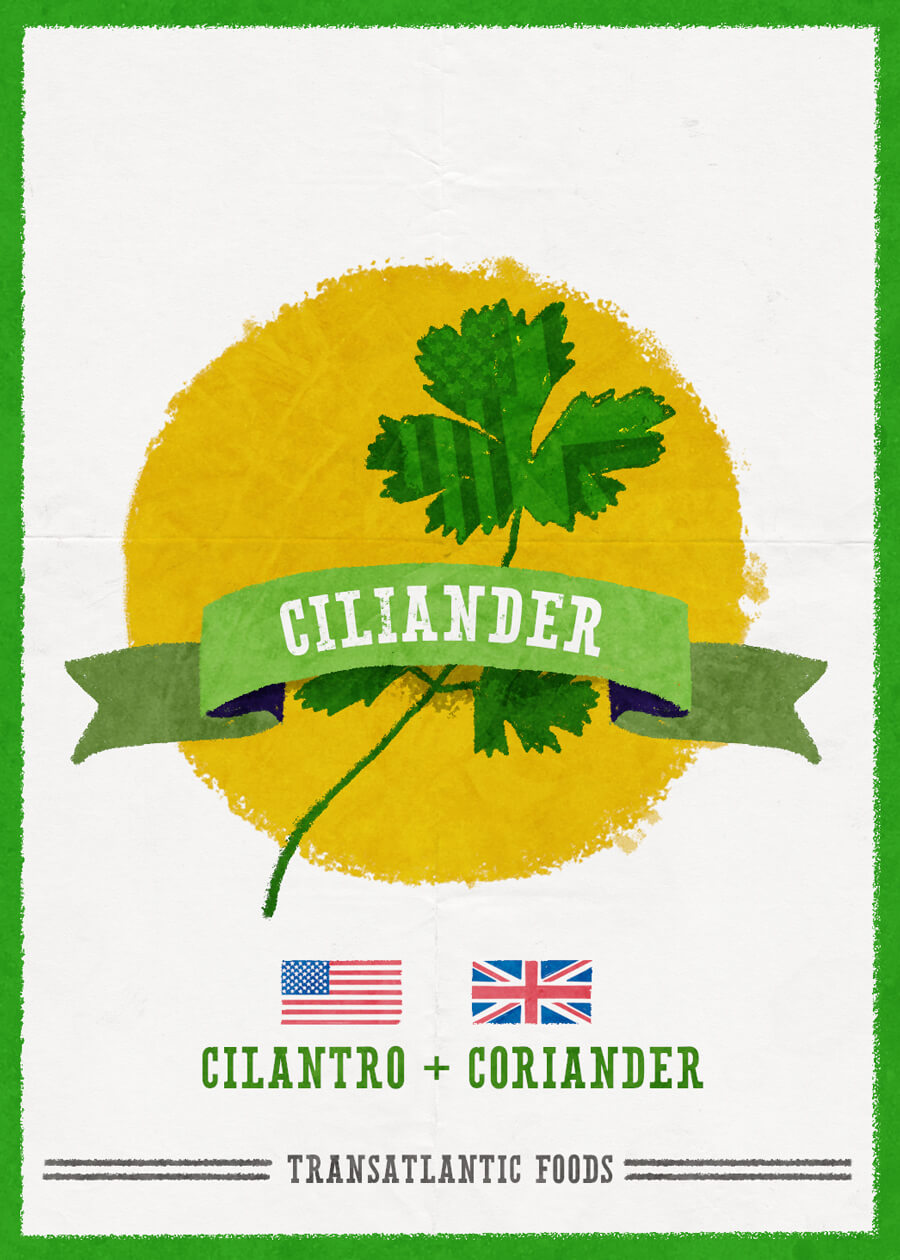
Coriander + Cilantro = Ciliander
The British know this Mediterranean herb as coriander, but the Americans know it as cilantro, together we get ciliander. Cilantro is also the term used by the Spanish. While generally both terms refer to the same food product, there is a difference. Cilantro and coriander refer to the same plant, however cilantro describes the leaves and stems and coriander describes the seeds after the plant has flowered. The seeds and leaves have specific roles in cooking as they give off different tastes. Cilantro is used when cooking Mexican dishes, in seasoned rice dishes, chillis and salsas. Coriander however is used in curries, soups and stews and is used as a flavouring for food. Of course, while these differences between the two terms are factual, when using the term coriander Brits often refer to the leaves. In the UK they may distinguish between seeds and leaves by saying fresh coriander and coriander seeds.
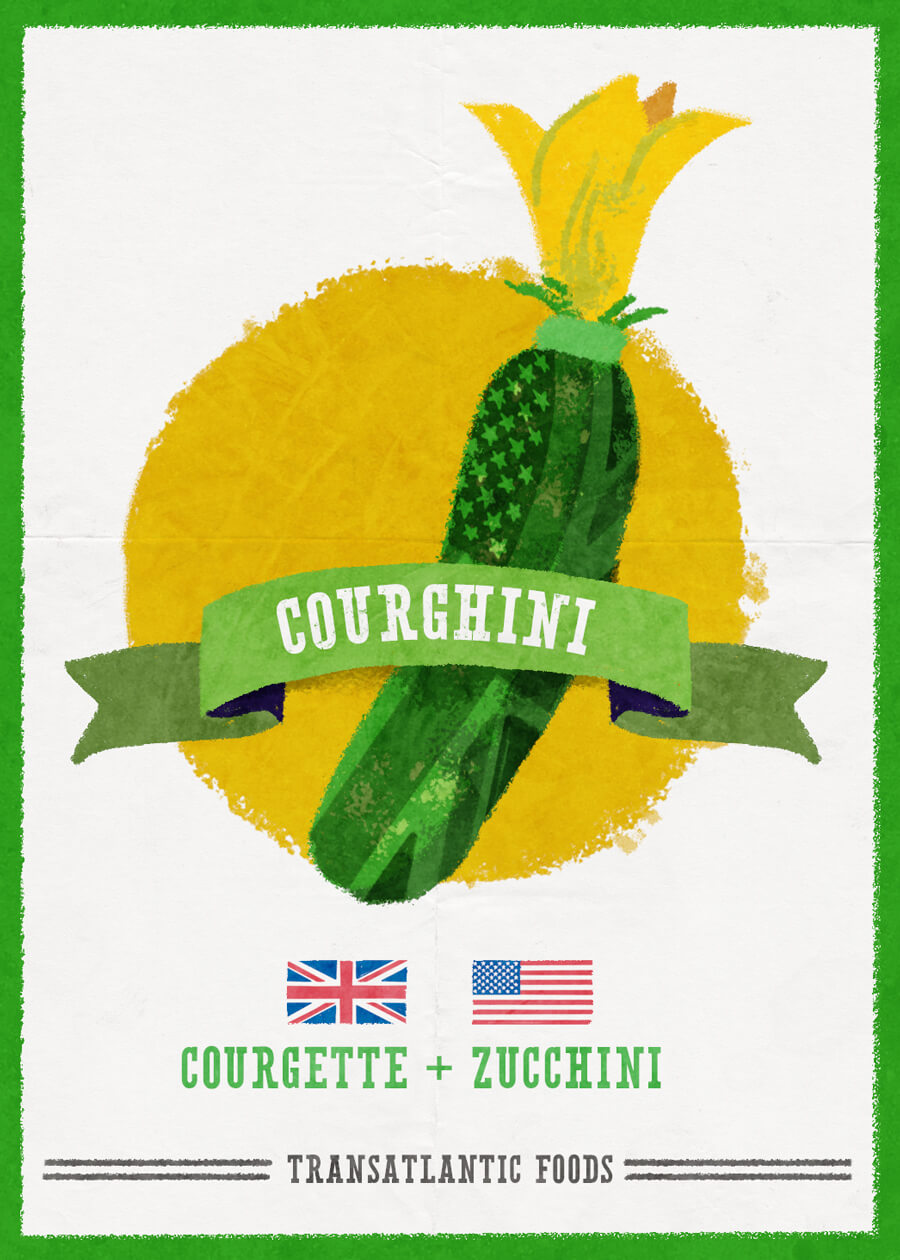
Courgette + Zucchini = Courghini
Courgette is the British term and Zucchini is the American translation, we mashed them up to give you Courghini. There are two key differences between the terms, the derivation of the name and the stage and size of the plant. Zucchini arose from the Italian word zucchino, meaning tiny squash or undeveloped marrow, whereas courgette arose from the French. While both terms refer the same vegetable however there are some key size differences. Zucchini can be harvested at an early age, usually when they reach approximately 14cm x 4cm, and vegetables around this size are normally called courgettes. Once the vegetable grows between 15cm and 20cm it is then classed as a zucchini.
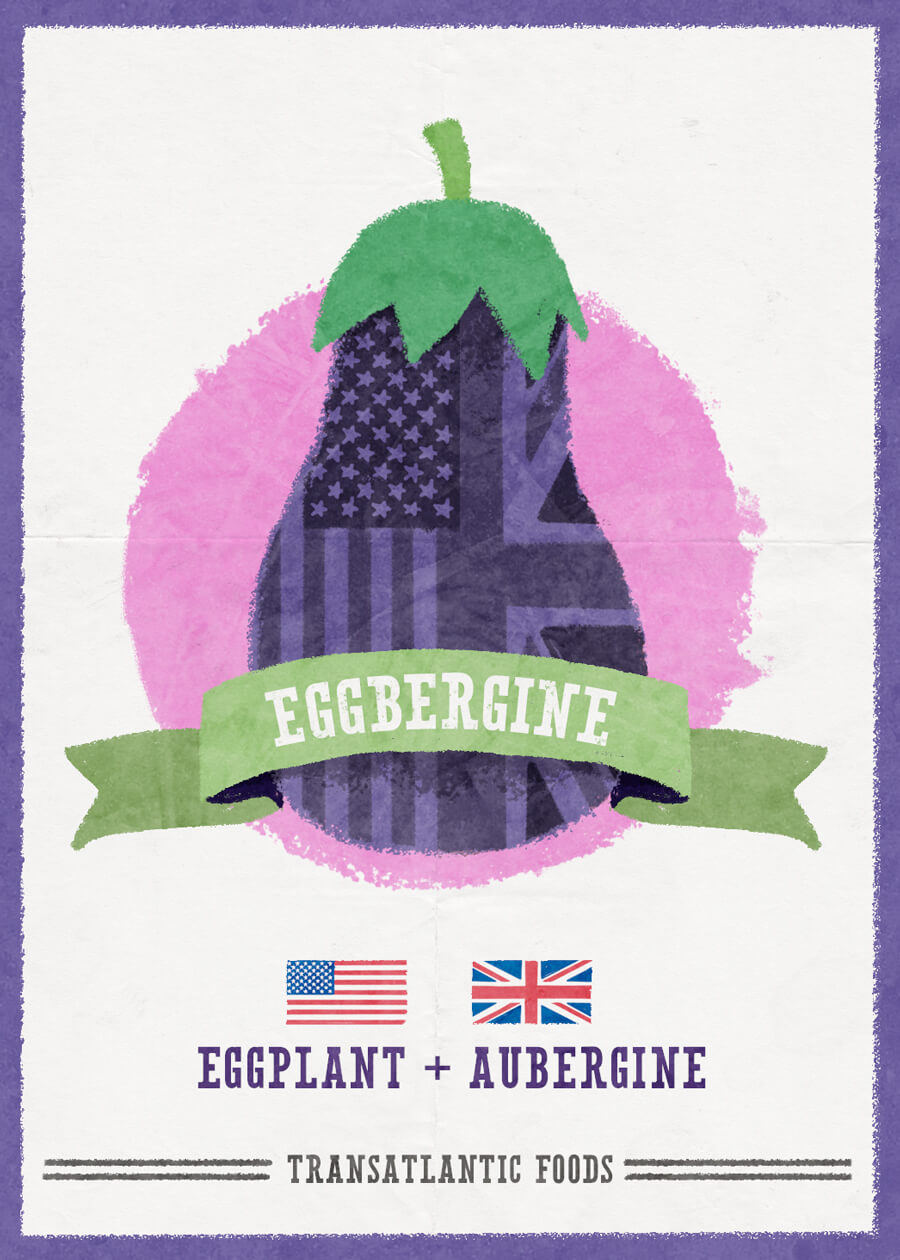
Aubergine + Eggplant = Eggbergine
Aubergine and eggplant are exactly the same thing with the only difference being their translation. The English know the fruit as aubergine and Americans know it was an eggplant. Brinjal is also a name used in Asia.
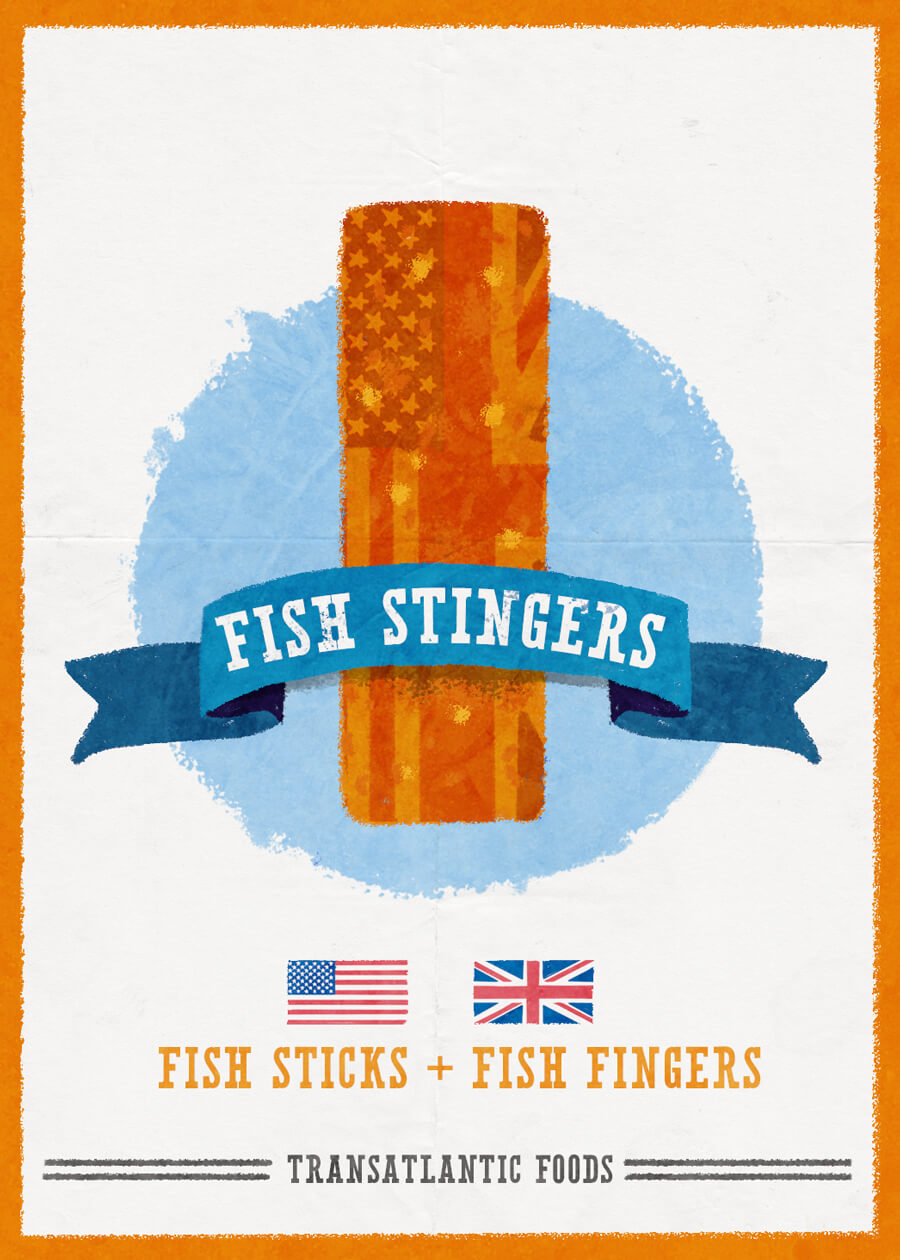
Fish Fingers + Fish Sticks = Fish Stingers
Fish fingers to the British are known as fish sticks to the Americans. There are no key differences in appearance although the American versions are said to be slimmer in size.
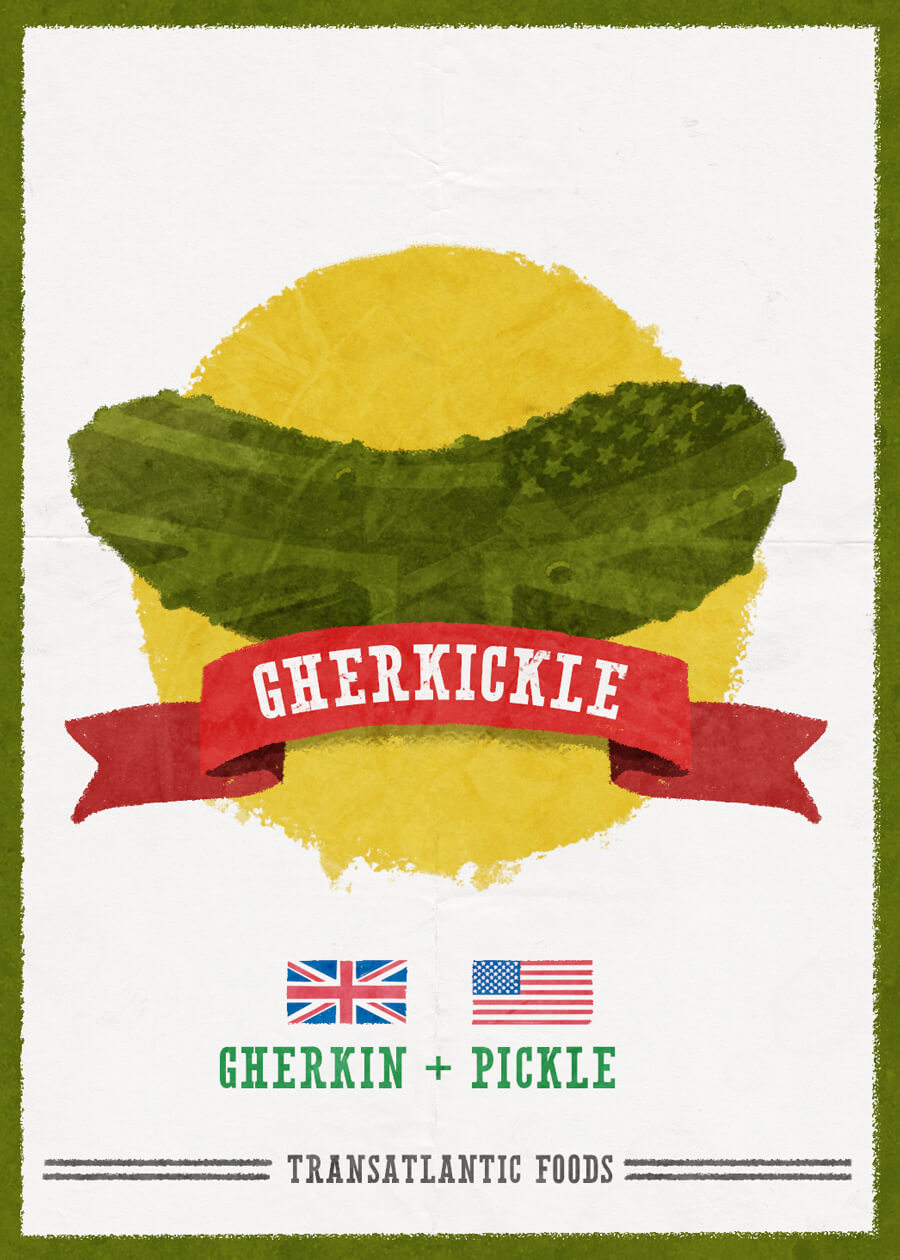
Gherkin + Pickle = Gherkickle
Gherkin to the British, Pickle to the Americans, together we get Gherkickle. Gherkins are often described as a young cucumber however they are not actually a cucumber. They do belong to the same gourd family however. The term is derived from the Dutch word ‘gurkkiin’, and when they measure 1-3 inches they are pickled as soon as they reach that size. Pickles are a type of young cucumber that are also pickled, however the pickling process often takes hours compared to the days it takes for gherkins. Pickles tend to involve putting the cucumber in a can or jar of brine and vinegar. The nature of pickles and gherkins is different but also gherkins tend to be smaller and crunchier.
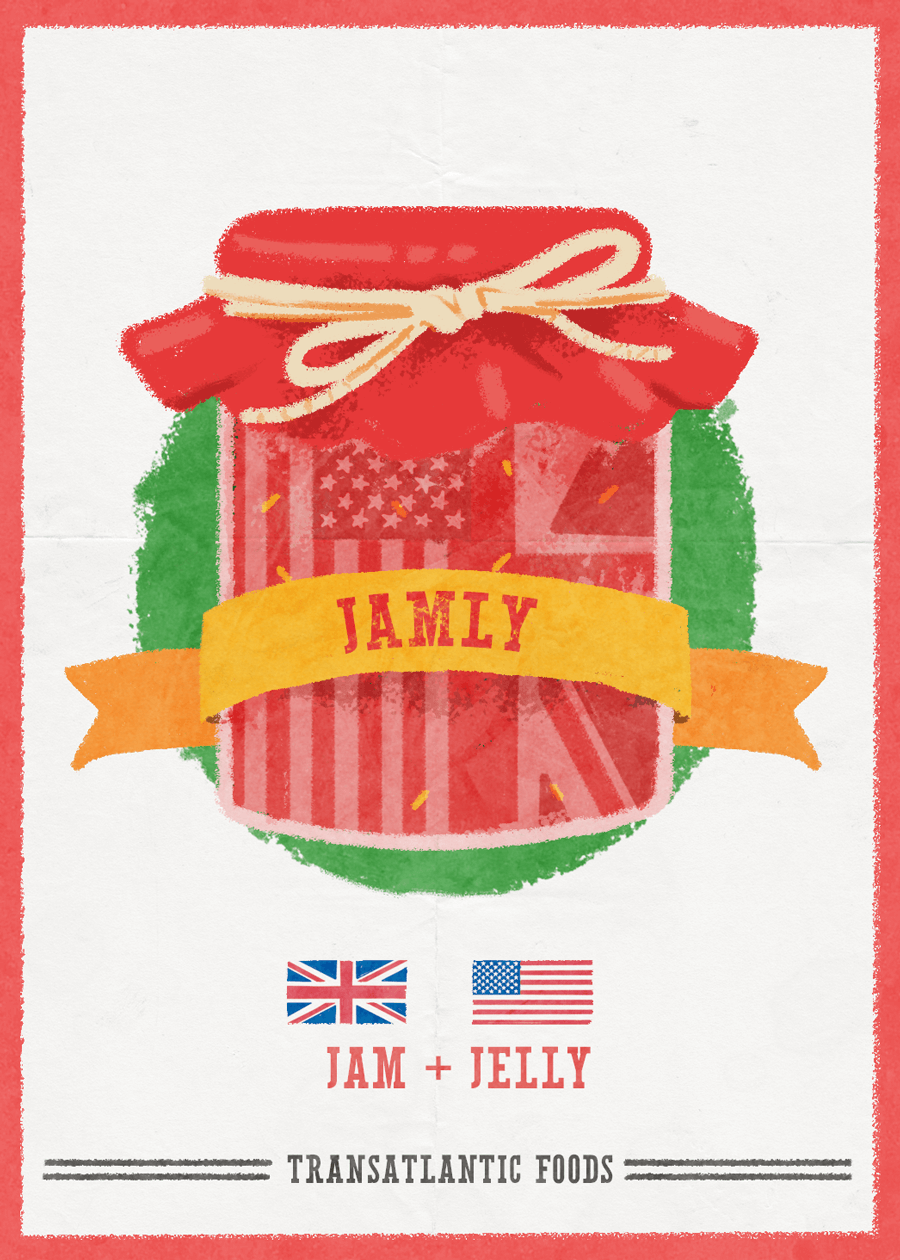
Jam + Jelly = Jamly
Jam to the Brits, Jelly to the Americans, together we get Jamly. Jelly in Britain however is Jell-O in American.
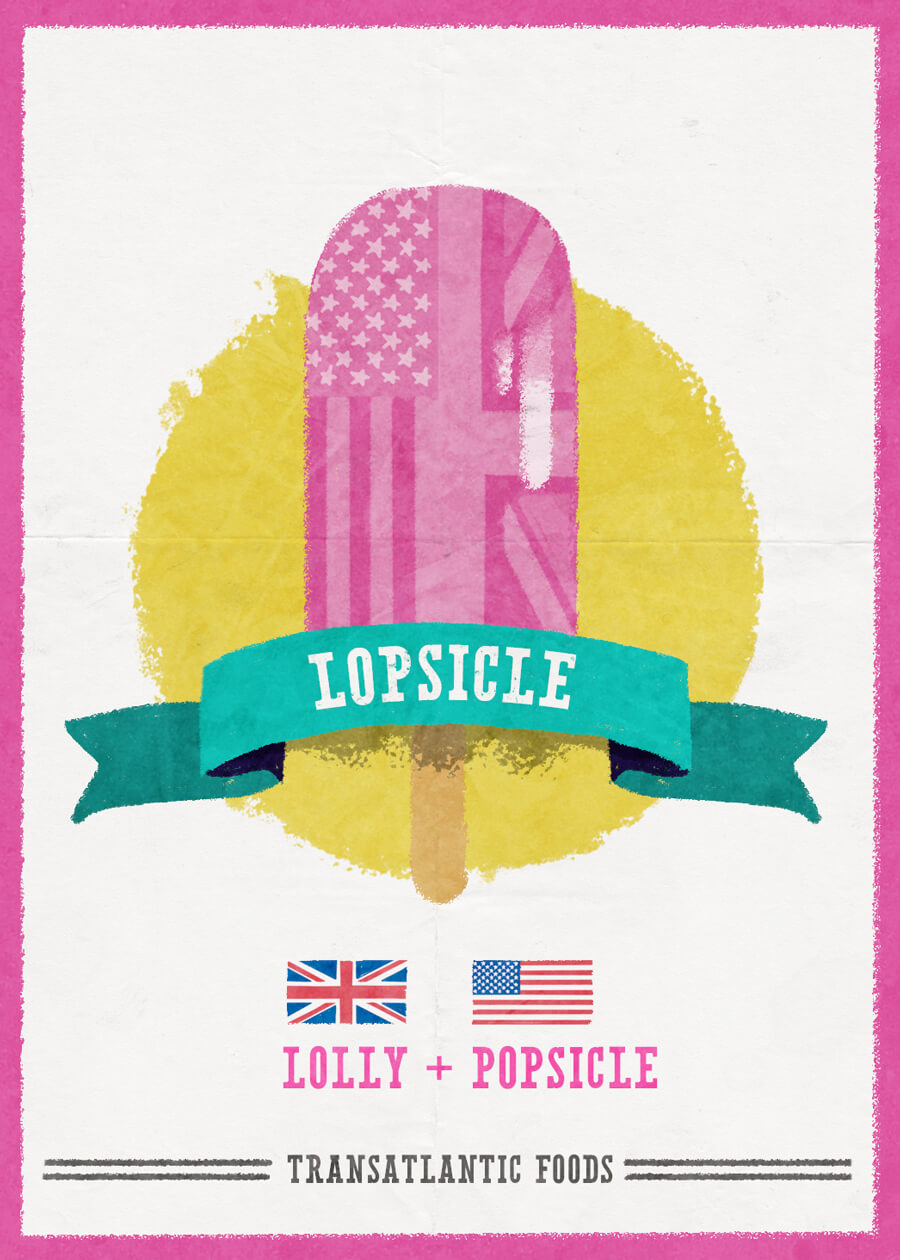
Lolly + Popsicle = Lopsicle
Ice lollies in Britain are more commonly known as popsicles in America, although popsicle is in fact a brand name. Ice pop is the correct name in America but people are more familiar with the term popsicles.
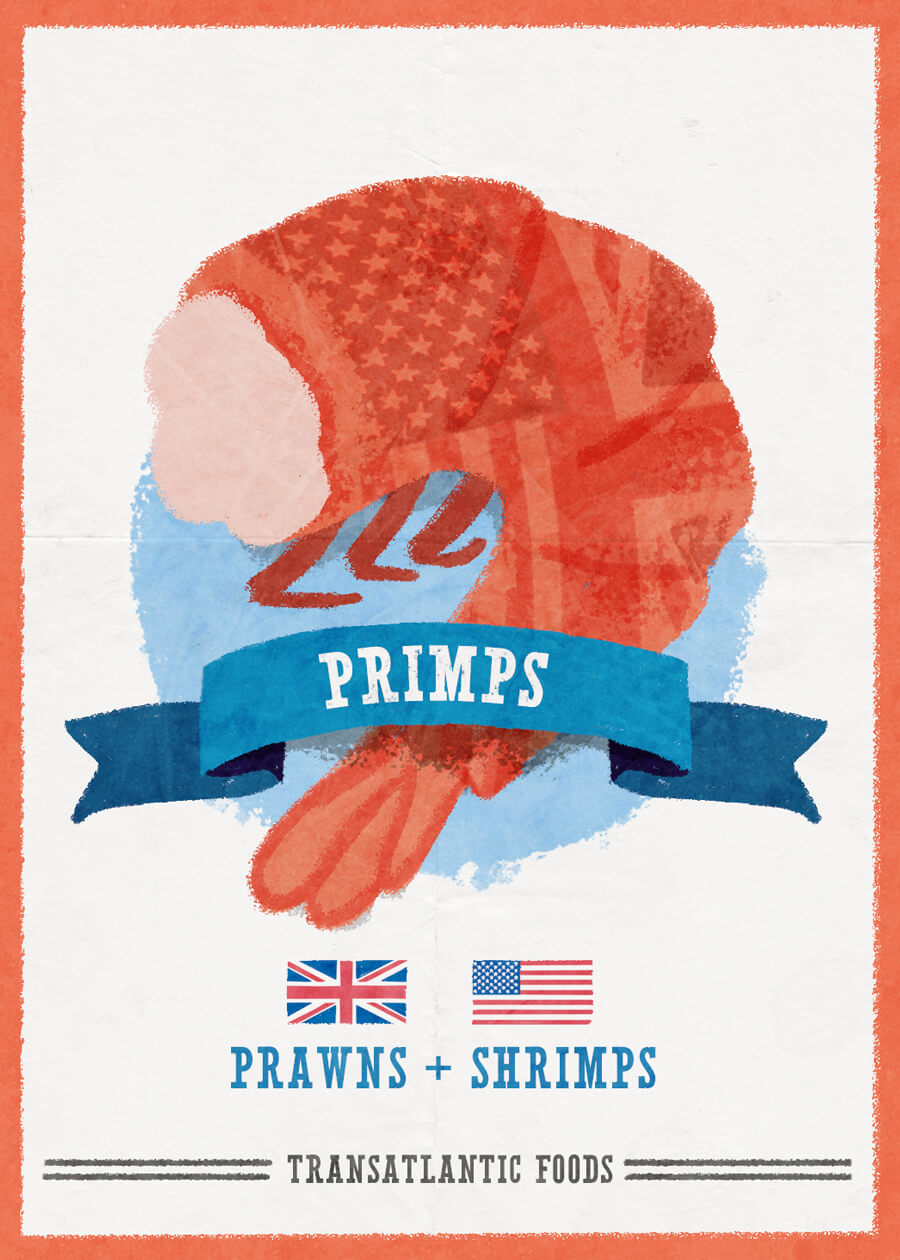
Prawns + Shrimps = Primps
Pawns in Britain, shrimps in America, mashed up we get primps. Is the only difference the translation however? Actually no. Both shrimps and prawns have ten legs and look similar, however they belong to different groups of crustaceans. Prawns have branching gills, where shrimp have lamellar gills. Prawns have claws on three pairs of legs while shrimp have claws on only two pairs of their legs. Prawns don’t have the same bend in their bodies that shrimp have either, and shrimps tend to be smaller in size also.

Rocket + Arugula = Rockula
The English refer to the green leaf as rocket, which is taken from the French ‘roquette’, and the American use the term arugula, which is taken from the Italian word.

Sweets + Candy = Swandy
Sweets to the British and Candy to Americans, mashed together we get Swandy.
